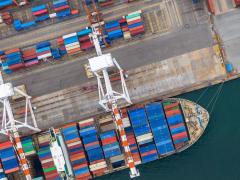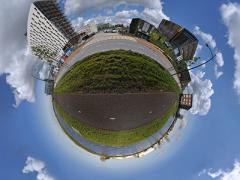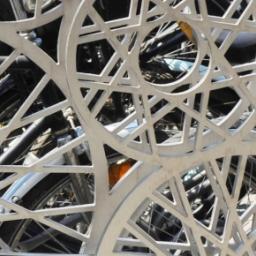ICER 2021: Use of natural resources hardly declining in the Netherlands, stronger policy on circular economy is needed
Several trends in natural resource use are not moving in the right direction. Although the Dutch economy has become more efficient, the total amount of natural resources used has hardly changed since 2010. Dutch consumption requires more and more land in production chains worldwide. Six out of seven national targets for waste are expected not to be achieved. And supply risks have increased for the Dutch economy, particularly for critical metals. These are the conclusions of PBL’s first Integral Circular Economy Report (ICER) for the Netherlands.
ICER reports outline the state of affairs for the transition towards a circular economy in the Netherlands
The ICER report present the state of affairs of the transition towards a circular economy in the Netherlands and contains guidelines for government policy on such a transition. The report describes the actions of stakeholders in society, the resources they are deploying and the government's intervention measures. It provides a summary of the Dutch use of raw materials and the associated environmental pressure and socio-economic effects. An ICER report will be published once every two years.
Government has laid the foundations for the transition
Over the past few years, the Dutch Government, together with other parties, has laid a foundation and created a structure for the transition towards a circular economy. Until now, the main focus has been on broad cooperation between public, private and social parties and the stimulation and facilitation of circular initiatives. Examples include knowledge development and voluntary agreements, such as the Concrete Agreement Netherlands and the Plastics Pact NL. In addition, Cabinet has identified the most important instruments for accelerating the transition towards a circular economy. These include producer responsibility, legislation and regulations, market incentives, monitoring, knowledge and innovation.
Recycling and repair have long been part of the economy, which still functions mainly linearly
Circular companies are still small in number and their collective share in the total Dutch economy has decreased, in recent years. The vast majority of businesses with a circular approach focus on repair, recycling and reuse, and have been active in this field even before there was a policy on circular economy. Examples of such businesses include garages and thrift shops. Today's innovative companies, start-ups, scientific research, subsidies and projects on the circular economy mostly have a technological character and mainly focus on recycling. There is less of a focus on innovations that could radically improve the efficient use of natural resources, new business models where you pay for use instead of ownership, and forms of financing or pricing that would support such models. These elements require more attention in further policy development with respect to the circular economy.
A more binding approach needed in circular economy policy
In view of the Dutch Government's strong ambitions to achieve a fully circular economy by 2050 and to halve the primary use of abiotic raw materials by 2030 as an intermediate goal, a more binding approach will be needed in policy to achieve this. These could include taxation, regulation and standardisation. Environmental damage needs to be factored into the prices of products and services. Legislation and regulations should not disadvantage circular initiatives over existing production practices. This also requires EU-level involvement. In addition, the vision of a fully circular economy by 2050 and the intermediate target for 2030 must be made specific for the various sectors (e.g. construction and manufacturing), production chains and product groups. All this is not a matter for one ministry, but requires a cabinet-wide coherent approach in which each ministry has its own role to play.
The ICER report was realised in collaboration with a broad knowledge consortium
The following institutes collaborated on the realisation of the ICER report: Statistics Netherlands (CBS), Institute of Environmental Sciences (CML, Leiden University), Copernicus Institute (Utrecht University), CPB Netherlands Bureau for Economic Policy Analysis, National Institute for Public Health and the Environment (RIVM), Netherlands Enterprise Agency (RVO.nl), Rijkswaterstaat (RWS) and the Netherlands Organisation for Applied Scientific Research (TNO). All these institutes are contributors to the PBL-led multi-annual work programme on circular economy monitoring and guidance.


